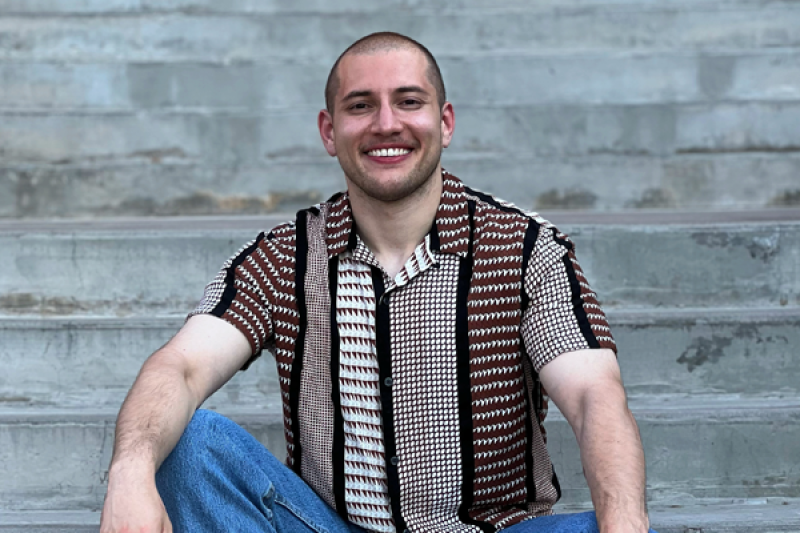ASU Scholar Begins Exploring Turkish Culture

Critical Languages Institute alum and master’s student of history at Loyola University Chicago Nikola Kajmakoski has won a prestigious and highly competitive Critical Languages Scholarship to study Turkish in Ankara, Türkiye this summer. When asked what originally drew him to study Turkish, Nikola, a first generation Macedonian-American, said “I’ve always been interested in the similarities between Macedonian-Turkish cultures and languages…having a personal connection really motivated my learning.”
Nikola’s missions is to expose areas of history normally ignored in scholarship: “Subverting particular discourses concerning the Balkans is a common theme throughout all my projects. Greece and Macedonia have many shared legacies, including solidarity and trauma.” Seeking to show the fraternal love between two peoples often portrayed as being eternally at odds with one another is a key part of his work. “I’ve seen firsthand attitudes about the ‘Other,’ with little discussions had about this fraternity. Again, it’s about subverting discourses and emphasizing our shared histories.”
Nikola, who attended CLI in 2023, feels that his summer at ASU helped prepare him for his upcoming program in Turkey well: “I couldn’t have asked for a better program than CLI to begin learning Turkish.”
Nikola noted that his language learning wasn’t always smooth sailing: “I struggled in the early weeks, but everything became easier towards the end. I had immersed myself so much that I began forgetting Macedonian and responding naturally in Turkish with my family. I’m excited to apply these same habits and tools with CLS in Ankara.”
Though he originally planned to pursue a PhD and then an academic career in history, Nikola has switched plans. He was clear that he still wanted to pursue a PhD, but that “academia’s realities pushed my attention towards nonacademic pathways, careers I can still pursue with a PhD.” Expanding on this, Nikola said, “history is a malleable field, and I’m looking at applying my cultural-historical-linguistic skills across government agencies and non-profits. My experiences at CLI reaffirmed these plans, and I feel more secure about my future having attending CLI, and aware of these opportunities, than if I had not.”
Written by: Jaik Havlick